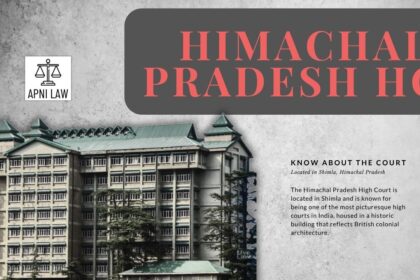Introduction
Section 6 of the Indecent Representation of Women (Prohibition) Act, 1986, plays a crucial role in enforcing the law against the indecent portrayal of women. This section outlines the penalties and legal procedures for prosecuting violations under Sections 3 and 4 of the Act. It aims to deter the publication or exhibition of any material that demeans or objectifies women. By providing clear guidelines for filing complaints, collecting evidence, and conducting trials, Section 6 ensures swift and effective action against offenders. Understanding these legal provisions is essential for protecting women’s dignity and upholding public morality.
Penalty and Legal Procedure Under Section 6 of the Indecent Representation of Women (Prohibition) Act, 1986
Section 6 of the Act prescribes strict penalties for those who violate Section 3 or Section 4. On first conviction, the offender may face imprisonment for a term that can extend up to two years. The court may also impose a fine that can go up to ₹2,000. If the person is convicted again, the law mandates a minimum imprisonment of six months, which may extend up to five years. The offender will also be fined an amount not less than ₹10,000, which can go up to ₹1,00,000.
Legal proceedings under Section 6 usually begin with the filing of a formal complaint before a competent court. An aggrieved person or an authorized officer can file this complaint. It must contain the names and designations of the accused, a detailed description of the incident, the nature of the offence, and any available evidence.
The complainant must also collect and submit all necessary proof to support the case. This can include oral testimonies, official documents, expert reports, or regulatory records like inspection findings or legal notices. If a government or statutory authority files the complaint, it may need prior administrative approval from a senior official such as the Chairman.
In Case Of Delayed Filing
In case of any delay in filing the complaint, the complainant must explain the reasons behind it. The court will evaluate whether the delay was genuine and not due to negligence or bad faith.
Once the complaint is filed, the court examines the materials to see if there is a prima facie case. If satisfied, the court proceeds to summon the accused and conduct the trial according to the CrPC or BNSS. Both parties are given the chance to present their arguments and evidence during the trial. If the accused is found guilty, the court imposes the punishment as outlined in Section 6. Repeat offenders receive harsher sentences.
Importantly, prosecution under this Act does not require prior sanction from any government authority. This allows the court to take direct cognizance of the offence once a valid complaint is submitted.
Vinay Mohan Sharma v. Delhi Administration (2007)
Facts: The petitioner, as the editor, printer, and publisher of a magazine titled Eternica, was accused of publishing obscene and indecent photographs of women. The authorities sought to prosecute him under Section 4 and Section 6 of the Indecent Representation of Women (Prohibition) Act, 1986, and Section 292 of the Indian Penal Code.
Court’s Ruling: The court observed that the magazine contained photographs depicting naked and semi-naked women in an obscene manner, which prima facie had a depraving effect. The court upheld the framing of charges under the relevant sections, emphasizing the need to prevent the publication of materials that degrade women.
Sajitha v. State of Kerala (2013)
Facts: The petitioners approached the Kerala High Court seeking to quash criminal proceedings initiated against them under Section 6 of the Indecent Representation of Women (Prohibition) Act, 1986. The proceedings were based on allegations of indecent representation of women through advertisements.
Court’s Ruling: The court examined whether the materials in question violated the provisions of the Act. It considered the nature of the representation and its impact on public morality. The court’s decision highlighted the importance of context and the potential harm of indecent representations in advertisements.
P.M.V. Durai v. State (2016)
Facts: The petitioner was charged under Section 294 of the Indian Penal Code and Section 6 of the Indecent Representation of Women (Prohibition) Act, 1986, for exhibiting a pornographic film that allegedly contained indecent representation of women.
Court’s Ruling: The court considered whether the exhibition of the film amounted to an offence under the Act. It examined the content of the film and its compliance with legal standards regarding the representation of women. The court’s ruling underscored the necessity of adhering to legal provisions to prevent the dissemination of indecent material.
Conclusion
Section 6 of the Indecent Representation of Women (Prohibition) Act strengthens the legal framework to combat indecent representation effectively. It sets strict penalties, including imprisonment and fines, to discourage repeated offences. The well-defined prosecution process ensures that cases are handled fairly and efficiently, without unnecessary delays. By eliminating the need for prior government sanction, Section 6 empowers courts to act promptly against violations. Overall, this section is vital for safeguarding women’s rights and maintaining societal respect for their image in all forms of media and advertising.








